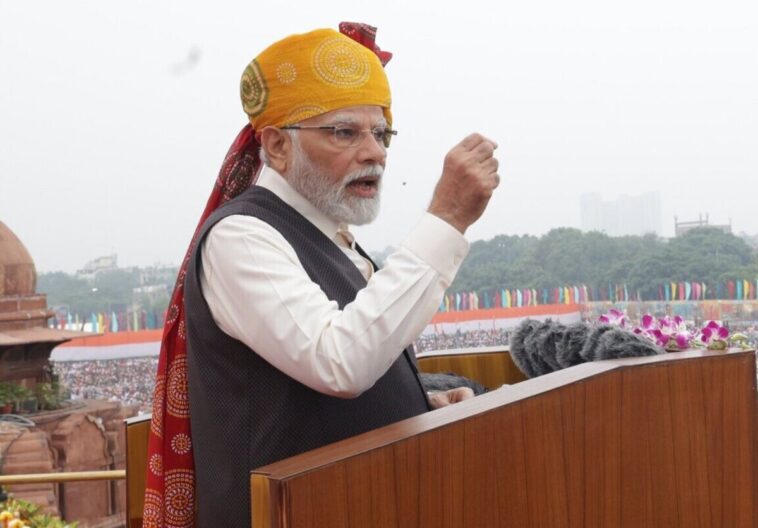Prime Minister Narendra Modi addressed a plethora of topics in his Independence Day address on Tuesday, including the ongoing reforms designed to equip the military to face future challenges.
“The armed forces should be granted authority. They should be youthful and combat-ready. Ongoing reforms are being implemented to achieve these objectives.”

The remarks were made amid a renewed drive for theaterisation, a long-awaited military reform aimed at maximising the use of military resources in future conflicts.
The armed forces adopted Agnipath, a novel recruitment model for the short-term induction of soldiers, last year. The scheme replaced the legacy recruitment system in order to reduce the average age of the three services, assure a fitter military, and create a technically proficient, future-ready fighting force.
Prior to Modi’s 2019 Independence Day speech, successive governments were unable to reach a political consensus on the establishment of the position of chief of defence staff, which would improve coordination between the armed forces.
The theaterisation drive received a boost during the recently concluded monsoon session of Parliament with the passage of a bill empowering the government to notify the establishment of inter-services organisations, including joint services commands, and empowering the heads of such organisations to take disciplinary action against personnel from any of the three services to ensure discipline and effective performance of duties.
The legislation is viewed as a significant step towards integration and cooperation among the armed forces in order to confront future challenges. It seeks to grant the commander-in-chief, officer-in-command, or any other officer heading a tri-services organisation the authority to take disciplinary and administrative action against personnel under them who are currently governed by the Army Act, 1950, the Air Force Act, 1950, and the Navy Act, 1957.
When it comes to tri-services matters, the current legal framework of the armed forces has limitations. Officers of one service lack the authority to exercise administrative and disciplinary authority over personnel of another service. A three-star general who heads a joint command cannot, for instance, act against air force or navy personnel serving under him.
ALSO READ : PM Modi’s Northeast Congress question: Nehru’s’my heart goes out’
It has a direct impact on command, control, and discipline that the chiefs of inter-services organisations and joint establishments lack such authority over personnel from other services.
The law paved the way for increased integration and cooperation between the three institutions. It establishes the groundwork for the development of joint structures and enhances the efficiency of the armed forces.




